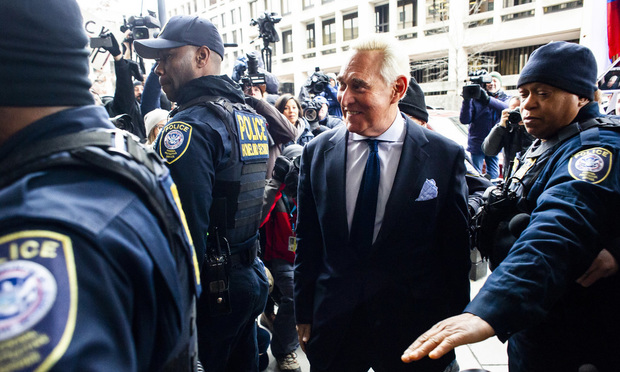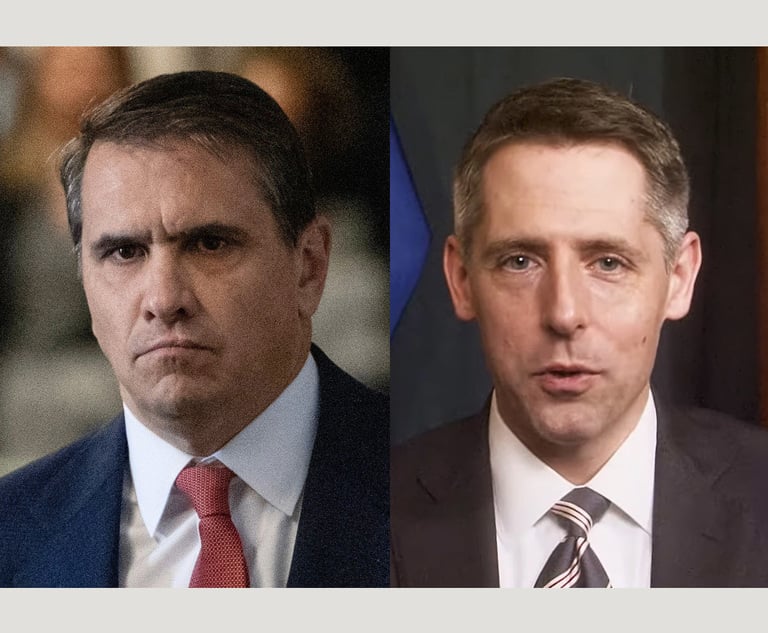Federal prosecutors are recommending that GOP political operative and longtime Trump associate Roger Stone be sentenced up to nine years in prison.
In a 26-page sentencing filing on Monday, prosecutors urged U.S. District Judge Amy Berman Jackson to sentence Stone “consistent with the applicable advisory guidelines,” and their calculation placed that guideline in the range of nearly seven to nine years in prison.


 Former Trump adviser Roger Stone arrives at federal court for his arraignment in Washington, D.C., on Tuesday, Jan. 29, 2019. Photo: Diego M. Radzinschi/ALM
Former Trump adviser Roger Stone arrives at federal court for his arraignment in Washington, D.C., on Tuesday, Jan. 29, 2019. Photo: Diego M. Radzinschi/ALM






